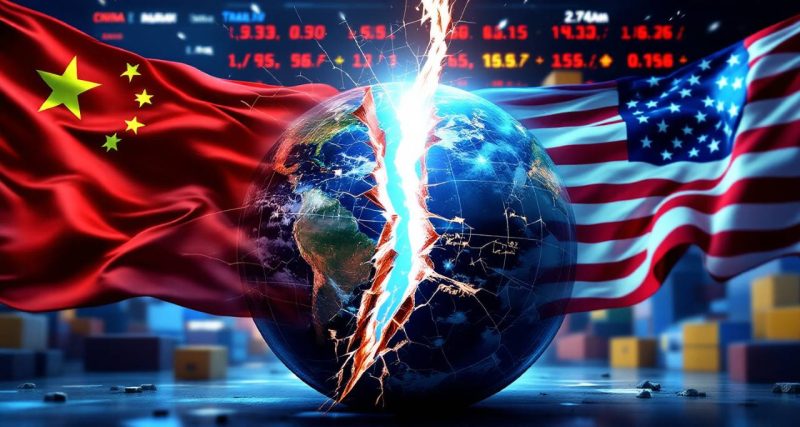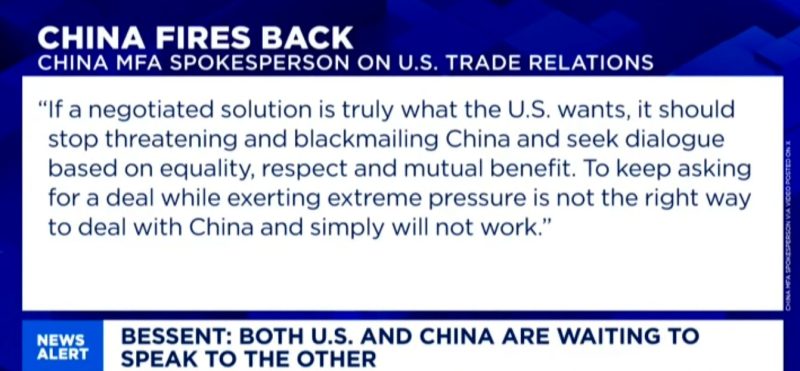
The Stage: A Trade War Reaches New Heights
In a week marked by economic turbulence and diplomatic brinkmanship, China has issued its most forceful rebuke yet to the United States’ escalating tariff war. President Xi Jinping, speaking in Beijing alongside Azerbaijan’s President Ilham Aliyev, warned that the U.S. approach to tariffs is not just a bilateral issue but a threat to the global economic order. Xi’s remarks, delivered with the weight of a nation that has long championed globalization, signal a new phase in the standoff—one where China is positioning itself as a defender of multilateralism and international fairness.
Xi Jinping’s Message: Tariffs as a Global Threat

President Xi’s statement was unambiguous: “Tariff and trade wars undermine the legitimate rights and interests of all countries, hurt the multilateral trading system, and impact the world economic order.” The timing was deliberate.
With the U.S. having just imposed a staggering 145% tariff on most Chinese goods, and China retaliating with a 125% duty on American exports, the world’s two largest economies are locked in a cycle of escalation that is reverberating through global markets.
Xi’s comments were not just directed at Washington. He used the occasion to reaffirm China’s commitment to the United Nations and to international law, positioning Beijing as a bulwark against what it sees as American unilateralism. “China is ready to work with the Azerbaijan side to uphold the international system with the United Nations at its core…and safeguard international fairness and justice,” he said, underscoring a broader diplomatic strategy.
The Economic Fallout: Markets, Multinationals, and the IMF
The economic consequences of the tariff war are already being felt. Major shipping companies report that up to 30% of U.S. orders from China have been canceled, a sign of the chaos gripping global supply chains. Cathay Pacific, a bellwether for Asia’s air cargo industry, expects a sharp drop in demand for U.S.-China shipments as the new tariffs bite.
The International Monetary Fund has revised its 2025 global growth forecast downward, from 3.3% to 2.8%, citing the trade war as a primary risk. Investors, meanwhile, are jittery. The S&P 500 surged 2.5% on hopes of a de-escalation after U.S. Treasury Secretary Scott Bessent called the current standoff “unsustainable” and hinted at possible negotiations (Chicago Tribune).
The U.S. Response: Mixed Signals and Political Calculus
President Trump, for his part, has sent mixed signals. While publicly insisting that “we’re doing fine with China,” he has also acknowledged that the current tariff rates are likely to come down “substantially.” Yet, behind closed doors, his administration has admitted that the status quo cannot last. Treasury Secretary Bessent, in a private speech, described the negotiations with China as a “slog” and warned that neither side believes the current situation is sustainable.
The Trump administration has also warned other countries against striking trade deals with China, while China’s Commerce Ministry has fired back, cautioning nations not to make deals with the U.S. at China’s expense. The result is a climate of uncertainty, with global businesses and governments caught in the crossfire.
China’s Broader Strategy: Building Alliances and Belt & Road
Xi’s meeting with President Aliyev was more than symbolic. The two leaders announced a comprehensive strategic partnership, signing 20 cooperation agreements under the Belt and Road Initiative. These deals span legal, green development, digital economy, intellectual property, and aerospace—evidence that China is doubling down on its global partnerships as a counterweight to U.S. pressure.
The Stakes: A Test for the Global Order
At its core, this is more than a trade dispute. It is a contest over the rules and norms that will govern the 21st-century economy. China’s message is clear: the world cannot afford to let one nation’s protectionism dictate the terms of global commerce. As Xi put it, “China is willing to work with other countries to safeguard the international system and uphold fairness and justice.”
The coming weeks will test whether these words translate into action—and whether the U.S. and China can find a way back from the brink, or if the world must brace for a new era of economic fragmentation.
